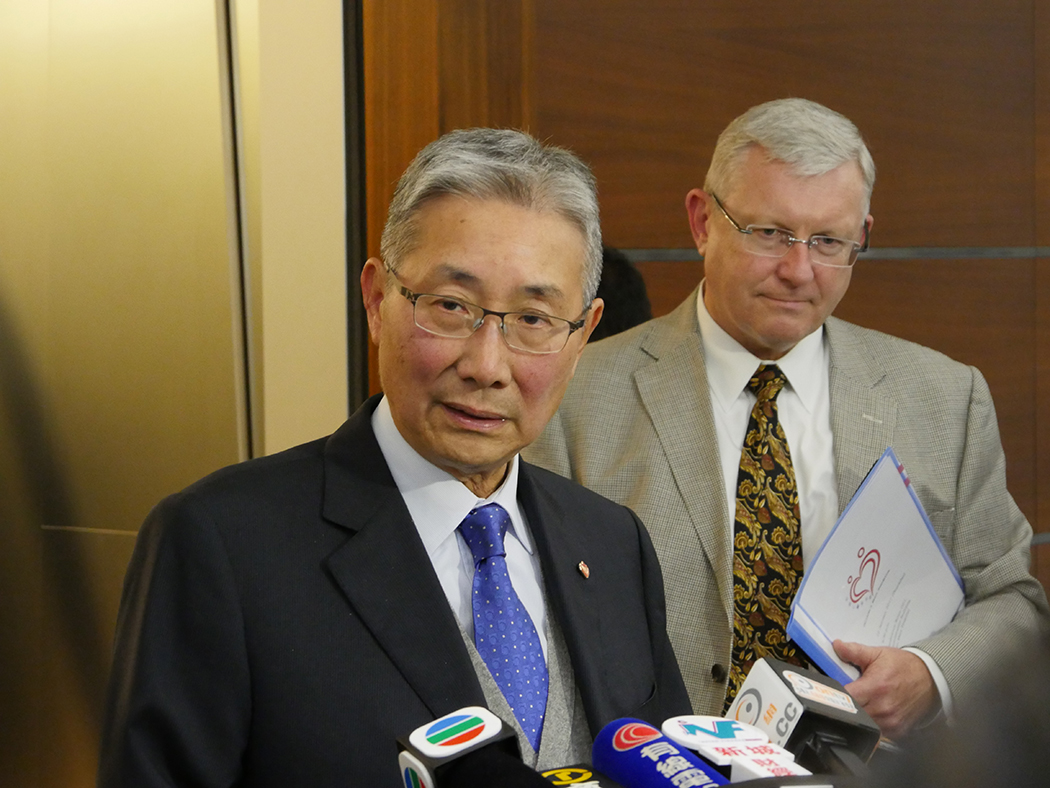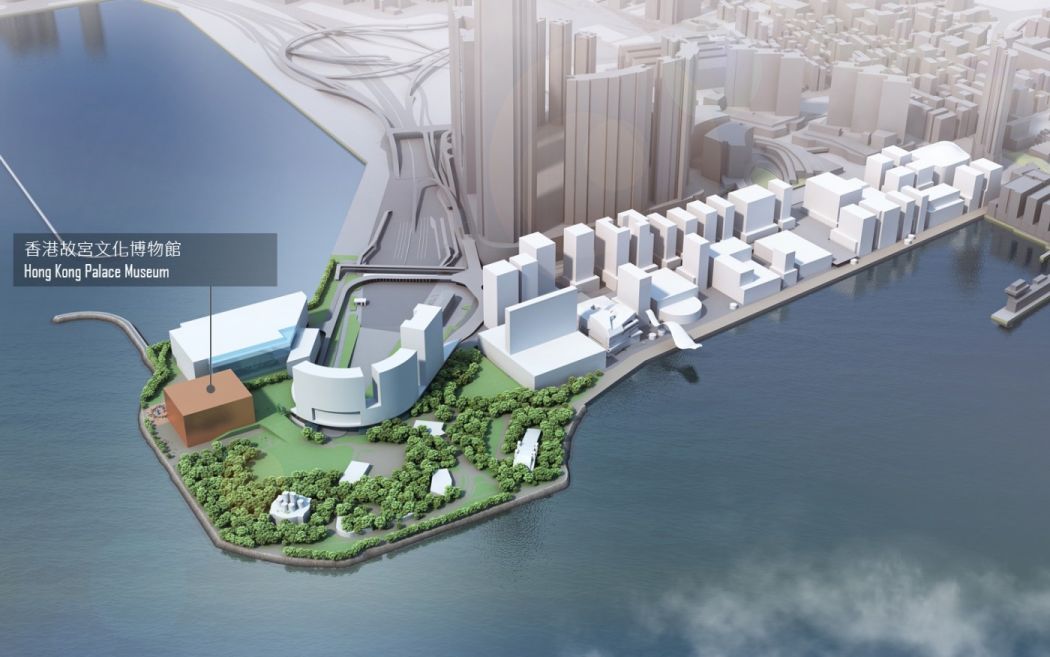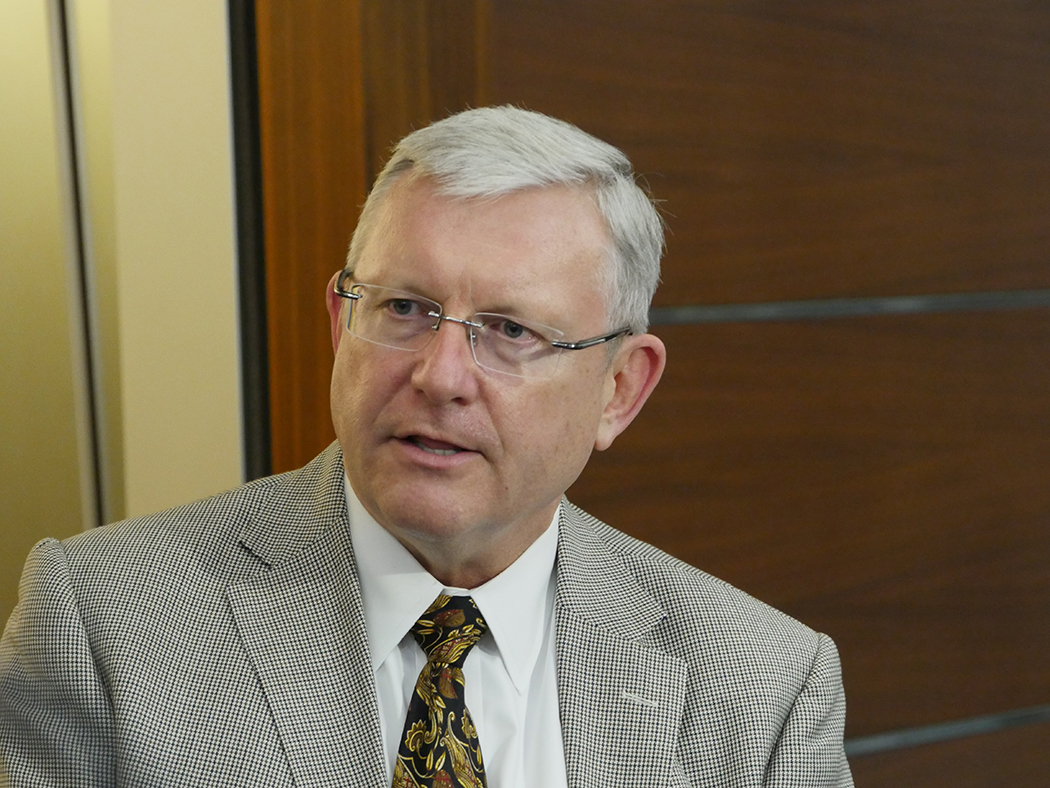The chair of a consultation panel of the West Kowloon Cultural District Authority (WKCDA) has said it was unfair to ask the public whether to build the Hong Kong Palace Museum at this point in time.
The project sparked controversy as there was no prior public consultation before Carrie Lam, Chief Secretary and chairwoman of the Authority’s board, revealed it. A six-week consultation process only started this week, inviting views on its design and operation with a short questionnaire.
Only a core group of five people knew about the project before Lam’s announcement, excluding anyone from the consultation panel. The panel is a body of the Authority that regularly meets to provide views, with members appointed from different sectors. John Leong Chi-yan, chairman of the panel, denied it was a problem that the panel was not consulted beforehand.

“Our usual practice is that whenever the WKCDA has made a big decision, the panel will be notified to discuss it thoroughly at regular meetings – members can ask questions and consult their industries for opinions,” said Leong. “It is not the practice that we provide views before the WKCDA makes a decision.”
Leong dismissed criticism that the parameters of the consultation were inadequate because it did not ask the public whether or not to build the museum.
“This is a polarising thing – whether it should be built. We did not discuss such a polarising thing at the meeting.”
He said only a memorandum of understanding was signed for the project, and that many details will have to be ironed out before a contract is signed. The memorandum stated that Hong Kong and the Beijing Palace Museum should strive to sign a contract within six months.
“At this stage, if you ask somebody ‘yes’ or ‘no,’ I think it would be unfair to the person to answer,” he said.

A special meeting held Thursday was called in a short time, according to Leong. Six out of 16 members were absent.
Leong said the members present unanimously supported the building of the Hong Kong Palace Museum. He said the discussion was honest, and members raised issues on the size of the venue, the transport of artifacts and security, among others.
During the meeting, Ching Cheung-ying, a member of the panel and a Democratic Party district councillor, said the decision process for the museum was “very suspicious,” and questioned whether it was only the will of the superiors that mattered.
Though he did not reject the museum, he said it was not difficult to understand why the public have questions.
“Is it that all the members of the public are wrong, that they misunderstood? Is it that the entire society has become fools?” he asked. “It was supposed to be a good thing… but it was done badly. There was no consultation, and now that there is consultation, it shows signs of a guilty conscience.”

Duncan Pescod, chief executive officer of the WKCDA, said that the project was a “fantastic opportunity for Hong Kong.”
“I worried, I really worried, that people in Hong Kong haven’t understood how magnificent this opportunity is,” he said. “If we lose it, there will be so many cities around the world that would be there instantly – if they don’t want it, we do.”
He denied that a requirement for the project’s architect was that he or she must be “a local Chinese,” after the Equal Opportunities Commission warned of a potential violation of racial discrimination laws.
“As far as I am concerned, the only criterion is the person who has to develop this must understand what we are doing, what are the criterion that a major international museum must have,” he said. “Of course if someone is Hong Kong based, that’s an advantage given the nature of this. Why would I or anyone on the board have a preference? That’s not the way it goes.”
